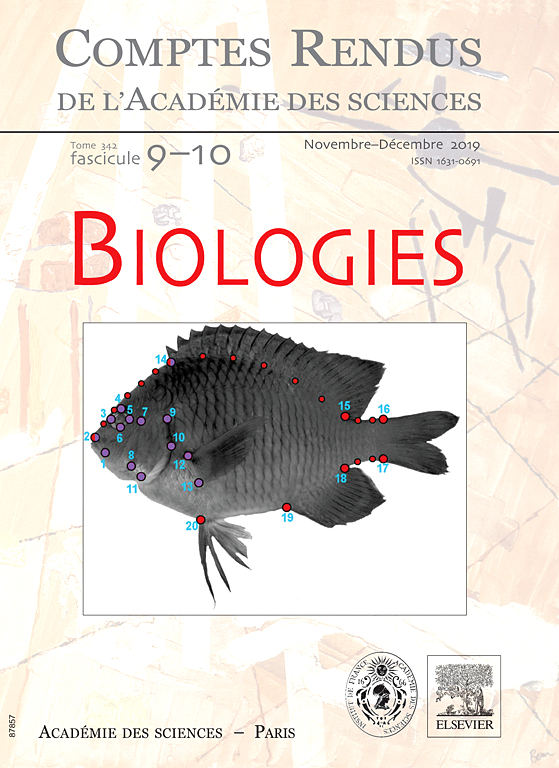巴斯德诞生200年后,微生物学发生了怎样的变化?
IF 0.6
4区 生物学
Q4 BIOLOGY
引用次数: 0
摘要
过去的两个世纪见证了重大的科学和技术进步,这些进步使微生物学领域发生了翻天覆地的变化。如果路易斯·巴斯德从他的地下室里出来和我们一起庆祝他的200岁生日,他会认出他是创始人之一的研究领域吗?学科的目标还是一样的吗?新技术对我们的科学方法有什么影响?新的视野和未来的挑战是什么?本文章由计算机程序翻译,如有差异,请以英文原文为准。
How has microbiology changed 200 years after Pasteur's birth?
The last two centuries have seen major scientific and technological advances that have turned the field of microbiology upside down. If Louis Pasteur came out of his vault to celebrate his two hundredth birthday with us, would he recognize the field of study of which he was one of the founders? Are the objectives of the discipline still the same? What is the influence of new technologies on our scientific approach? What are the new horizons and future challenges?
求助全文
通过发布文献求助,成功后即可免费获取论文全文。
去求助
来源期刊

Comptes Rendus Biologies
生物-生物学
CiteScore
2.40
自引率
0.00%
发文量
22
审稿时长
3 months
期刊介绍:
The Comptes rendus Biologies publish monthly communications dealing with all biological and medical research fields (biological modelling, development and reproduction biology, cell biology, biochemistry, neurosciences, immunology, pharmacology, ecology, etc.).
Articles are preferably written in English. Articles in French with an abstract in English are accepted.
 求助内容:
求助内容: 应助结果提醒方式:
应助结果提醒方式:


